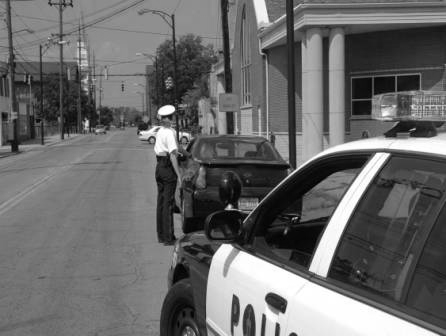Peach State Death Investigation: Autopsy In Georgia
Each state in the U.S. has its own laws and standards regarding medical examiners and coroners, and under which circumstances that autopsies are to be performed.
Georgia operates a unique system, in that both a medical examiner and a coroner may be involved in a single death investigation. Also unique is that the medical examiner’s office, where autopsies are conducted, falls under the jurisdiction of the Georgia Bureau of investigation (GBI), the equivalent to the investigative division of the state police in many states.
GBI also investigates drug crimes, homicide, rape, robbery, fraud, and other major crimes, and they maintain specialized units ready to respond to a variety of incidents—human trafficking, child exploitation, body recovery, and counter-terrorism, to name a few. They are also available to assist local police departments with investigations.
Georgia’s chief medical examiner oversees the medical examiner and coroner programs throughout the state. Autopsies in Georgia are conducted at the state’s main headquarters in Decatur, or at one of the regional labs in Savannah, Macon, or Augusta.
The main headquarters, as part of its team of eight medical examiners, employs one medical examiner whose specialty is pediatric pathology and fatal and non-fatal pediatric injury. Also on staff is a forensic anthropologist.
Georgia medical examiners investigate all deaths that fall under one the following categories:
1. Those deaths that are apparently homicidal, suicidal, or occurring under suspicious or unknown circumstances
2. Resulting from the unlawful use of controlled substances or the use or abuse of chemicals or toxic agents
3. Occurring while incarcerated or while in the custody of a law enforcement officer
4. Apparently accidental or following an injury
5. By disease, injury or toxic agent during or arising from employment
6. While not under the care of a physician during the period immediately preceding the death
7. Related to disease which might constitute a threat to the health of the general public
8. In which human remains have been disposed of in an offensive manner.
The Georgia Death Investigation Act requires that a medical examiner and/or coroner be notified in death cases, and that a medical examiner conduct a formal investigation and/or autopsy in cases where the victim/deceased died as a result of:
- As a result of violence
- By suicide or casualty
- Suddenly when in apparent good health
- When unattended by a physician; no person shall be deemed to have died unattended when the death occurred while the person was a patient of a hospice licensed under Article 9 of Chapter 7 of Title 31 of the Georgia Code.
- In any suspicious or unusual manner, with particular attention to those persons 16 years of age and under
- After birth but before seven years of age if the death is unexpected or unexplained
- As a result of an execution carried out ursuant to the imposition of the death penalty under Article 2 of Chapter 10 of Title 17
- When an inmate of a state hospital or a state, county, or city penal institution; or
-
After having been admitted to a hospital in an unconscious state and without regaining consciousness within 24 hours of admission
There are five determinations for manner of death:
- Homicide – the death was caused by the actions of another person.
*Remember, homicide and murder are NOT the same. Murder is the unlawful taking of a human life by another. While all murders are homicides, not all homicides are murders. In Georgia, for example, if a homeowner, fearful for his or her life, kills an intruder, or a law enforcement officer kills someone in the line of duty, both are considered homicides but not necessarily murder.
- Natural – the death was from diseases or medical conditions such as cancer or heart attack.
- Accidental – an unintended death
- Suicide – a death that is intentionally self-inflicted
- Undetermined – there is little or no evidence to establish
*Source – GBI/Medical examiner’s office
background: #bd081c no-repeat scroll 3px 50% / 14px 14px; position: absolute; opacity: 1; z-index: 8675309; display: none; cursor: pointer; top: 804px; left: 20px;”>Save







Though not a writer or in law enforcement, I enjoy this blog so much for the fascinating tidbits of information. Thanks.
Hi Lee,
Quite a similarity to our system for most part. We have a few other verdicts (determinations).
1. Misadventure
2. Open (Your undetermined)
3. Narative (A longer explanation is then given)
4. Suicide. We rarely use that word now. Normally the verdict will be ‘Took their own life’. A rider maybe included such as ‘while suffering from depression’.
Regards
Paul (England)
well said. This is true of anything one uses in writing regarding law enforcement and statues. If one wants to be credible one must do research.